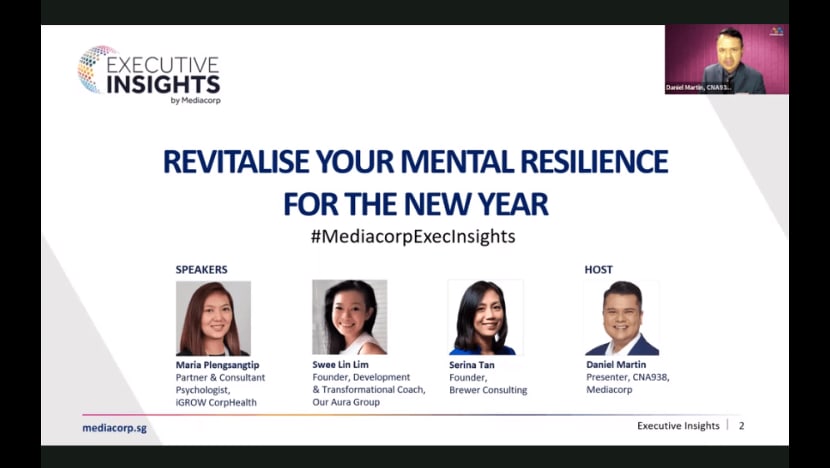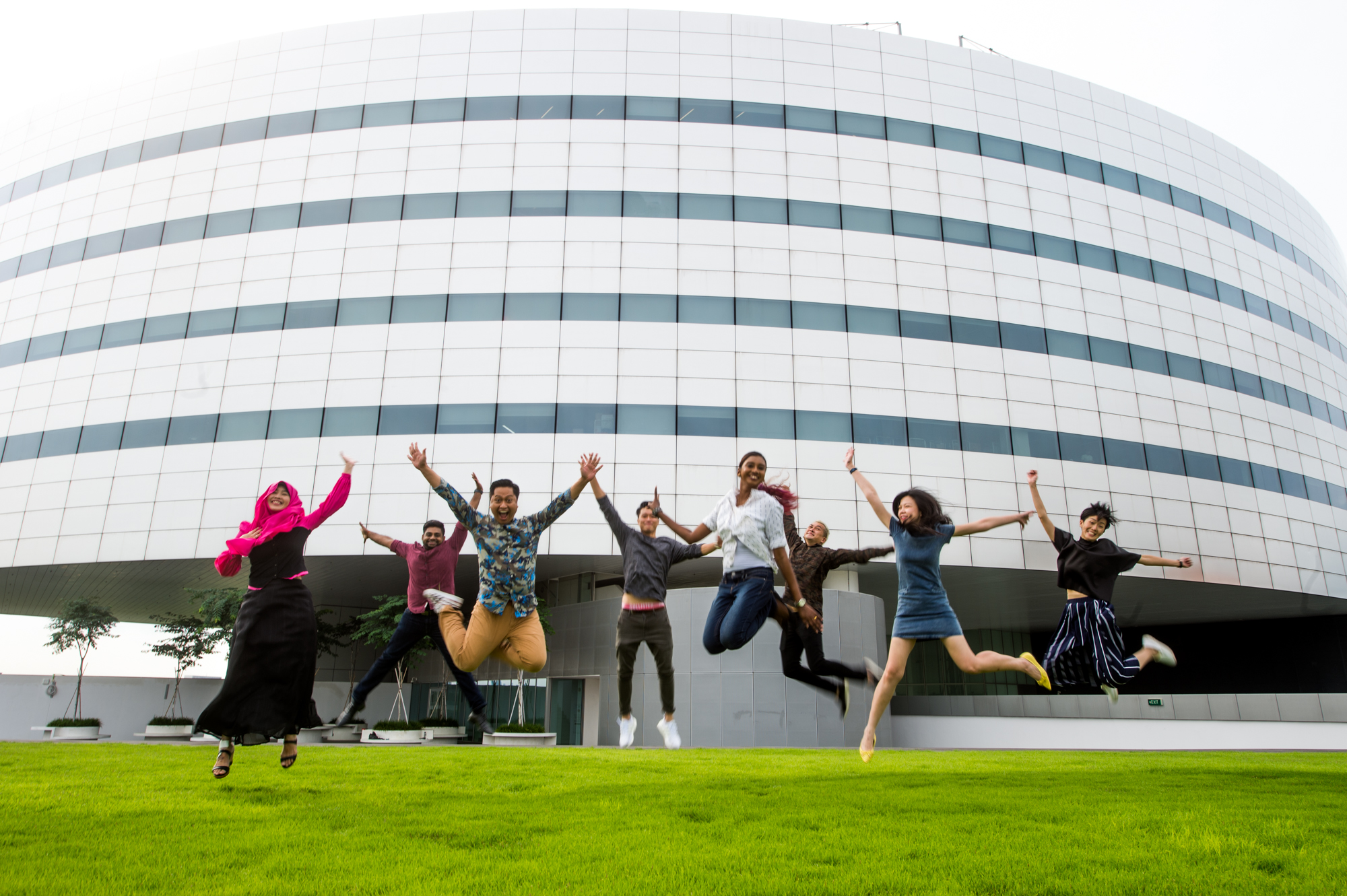Revitalise your Mental Resilience for the New Year

Unprecedented shifts in our lives brought about by the pandemic have impacted the mental well-being of many. In Singapore, approximately 1 in 7 will experience a mental health challenge in their lifetime.
Join our panel of wellness experts who will share how to cultivate mental resilience, combat psychological challenges, build more productive habits and promote employees’ well-being
Executive Speakers
Maria Plengsangtip, Partner & Consultant Psychologist, iGROW CorpHealth
Swee Lin Lim, Founder, Development & Transformational Coach, Our Aura Group
Serina Tan, Founder, Brewer Consulting
Host
Daniel Martin, Presenter, CNA938, Mediacorp
Question & Answer
Can a specific coping method be both beneficial and harmful in different circumstances? Do different cultures use different coping strategies?
In counselling, therapists must consider the individual differences which includes cultural differences while working with the client. There are many evidence-based coping method available, but this doesn't mean it will work 100% with all individuals. Therefore, the collaborative work between the therapist and the client is crucial to explore what works and what doesn't.
How can we possibly train and influence the leaders? Usually they don’t care until it's too late because employees can easily be replaced.
Yes! Leaders can be trained. We acknowledge that due to the workload, leaders (and actually all of us) sometimes overlook the relational part of the team. Leaders must first be aware that being an effective leader requires both task focused as well as relationship focused. No one wants to be "just a number" in any company. Research on "Transformational Leadership" emphasizes on "Individualized Consideration" - being people driven, showing concern for the needs of others. This can include checking in on the team members. Health Promotion Board (HPB) came up with an excellent campaign called #JustCheckingIn which covers basic skills that leaders can use to start conversations.
Source:
Transformational Leadership Actions: 4 Actions Transformational Leaders Take
HPB Campaign: Hi #JustCheckingIn
Other than disengaging from work, what else can we do to better manage/prevent burnout?
One source of burnout is the lack of control (e.g. working at different hours into the night, not having time for lunch/ dinner, workload piles up, etc). Taking time away from work, going for a walk – all are activities that can help the individual regain control of his/her life. It's about "choosing" which is essential to manage burnout. So start with the question "What is within your control? What can you do?"
If we are feeling bad (e.g. angry, depressed) and we have unhelpful thoughts, how do we manage the situation? Would managing our emotions or our thoughts first be more helpful in practice?
Firstly, it is important for us to recognize our emotions, and know that "It is ok not to be ok". In fact it is our human right and entitlement to feel bad when bad things happen. Sometime all of us need some downtime to pause and regroup our thoughts and emotions. The key is how long we stay down. Usually, the people around us will give us feedback if we are down for too long.
If we are ready to take action, working on our thoughts are useful, as our thoughts often leads to our feelings and actions (principles of Cognitive Behavioral Therapy). What we find useful in our work, is to anchor on safe beliefs. To remind ourselves that we are safe, we are secure, we are going to be alright. Pairing these affirmations with deep breathing techniques helps to lay good anchors. There are some links for further readings.
How do you create a safe, open space for communication about personal challenges and stress at the office or in a professional environment?
This is what "Psychological Safety" is about. As mentioned in the webinar, the 4P (Policy, People, Practice and Programme) can help to create a psychologically safe workplace. For leaders, this can start by being supportive of team members and offering a listening ear when possible. I know I will be more willing to speak up in an environment where I will not be penalized, and where the person whom I am sharing with doesn't judge me for what I am going to share. This will be a good place to start in nurturing psychological safety in the workplace.
Having said that, it is not all on the leaders, we would need team members that are willing to speak up as it takes 2 hands to clap.
Further reading here:
iGROW - Empathetic Communication
To receive information on our upcoming Webinars, email trade-marketing@mediacorp.com.sg.




